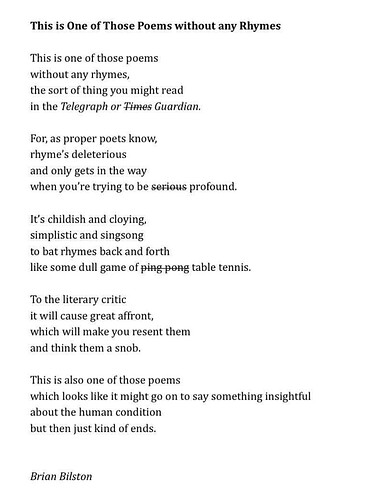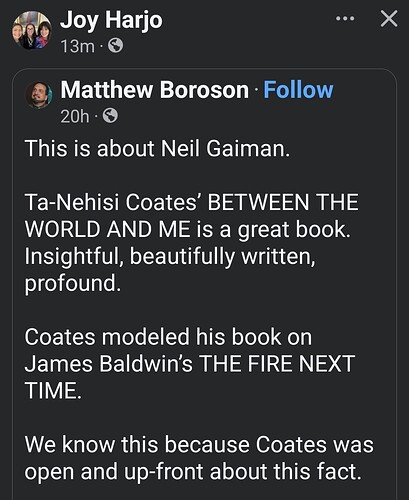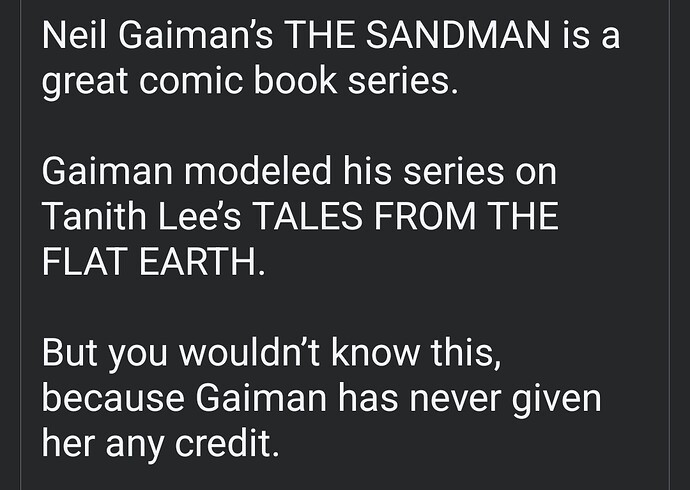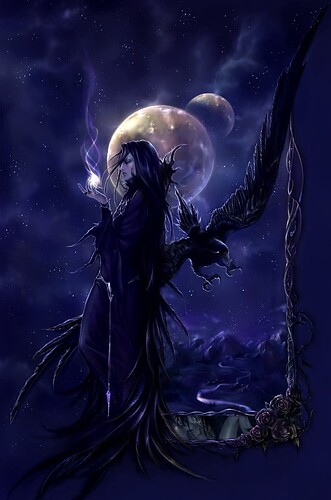Perhaps that’s why Caesar often referred to himself in the 3rd person-- so that if someone’s reciting or reading a message, it’s clear whether they’re referring to Caesar or to themselves.
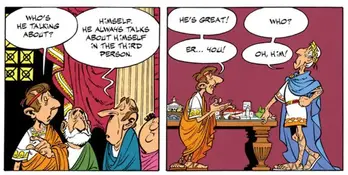
I think one factor here might have been Caesar’s time running a Las Vegas Casino as a questor.
Detailed accounts and documentation that are compiled and maintained in a way that lets one look up any information needed at any given point directly, without fuss and having to decrypt and interpret said information in the process, is a very useful and powerful administrative tool indeed.
I mean, sure, there are people like Callimachus and his poem about hair that is basically all just dropped references. I don’t think I’ve ever heard someone level that type of accusation at say Herodotus though. Thucydides is said to be particularly subtle, but it seems like almost the opposite of a paid-by-the-word way – instead his sentences are dense with word order, inflection, and careful word choice giving a lot to unpack.
I don’t speak Greek so the only thing I can comment on myself is his most famous quote: “δυνατὰ δὲ οἱ προύχοντες πράσσουσι καὶ οἱ ἀσθενεῖς ξυγχωροῦσιν”. It’s usually translated something like “the strong do what they will and the weak suffer what they must” but mostly as implication since almost none of those are the direct words for those concepts. Not verbose, but if you wanted to claim it wasn’t representative of his style I couldn’t argue.
“Paid by the word” is probably the wrong way of putting it. It’s not loquaciousness for its own sake (although you also see that), more that it was dense. They had all these grammatical things to play with, and by god they’d do it. They’d say things with fronting, by an attributive dative instead of a straight genitive, they’d shuffle the subject and object noun phrases up so that you’d have to use case to tell which adjective went with which noun, they’d use cases and declensions that other languages simply don’t have. And that’s not even including all the usual tricks like litotes, sarcasm, metonymy, hyperbole, oxymorons, callbacks, …
I was terrified of him. Everyone was terrified of Doug. I’ve seen grown men pull their own heads off rather than see Doug. Even Dinsdale was frightened of Doug.
What did he do?
He used sarcasm. He knew all the tricks, dramatic irony, metaphor, bathos, puns, parody, litotes and… satire.
Dear, everyone who replied.
I don’t know the answer to this. I have no classical education, and at this point I probably never will.
Considering the time it would have taken to copy a book like that, I would think Thucydides would try to be brief as possible.
I’m putting the “long, convoluted sentences” on the translator. If I had to guess, I would say he prefers Dickens to Hemingway. It’s not a bad translation, just ponderous.
Translators make a big difference. I have read translations of Sophocles that feel very natural and easy to understand. Then there are other translators who try to be another Shakespeare and fail.
Anyway, it is a good mental exercise. Honestly, it’s making me better at focusing my attention.
I stayed in with an air filter in a small room, watching the funeral of Jimmy Carter. At 4 p.m., the phone sounded with another evacuation order, but fifteen minutes later it sounded again, much in the manner of the little girl who shouted ‘fire’, with an order to ignore the last order. The air, as dusk came, grew yellow, like the fog in Prufrock that licks its tongue into the corners of the evening. At five o’clock, oddly enough, tennis balls I had ordered online were delivered. It seemed to me, in these areas filled with toxic air, that people should be encouraged to stay home. I could have waited for the tennis balls. News came of the destruction by fire of a friend’s beautiful house up the hill in Malibu. It seems now that this sort of news is going to come hour after hour.
On Tuesday when Gary Indiana’s library came to Los Angeles, it rested for a while in the appointed house in Altadena. But it was the wrong day. If they – the signed editions, the rare art books, the weird books, the books Gary treasured – had come a day later, there would have been no address to deliver them to, so they would have been saved. But on that Tuesday, unfortunately, there still was an address.
Writing poems is very tough,
Its hard to make them rhyme.
You think and think and think and think,
but its just a waste of …money
Haiku need not rhyme,
but do have their own problems.
Syllables are…damn.
The whole brief piece
This is about Neil Gaiman.
Ta-Nehisi Coates’ BETWEEN THE WORLD AND ME is a great book. Insightful, beautifully written, profound.
Coates modeled his book on James Baldwin’s THE FIRE NEXT TIME.
We know this because Coates was open and up-front about this fact.
George R.R. Martin’s GAME OF THRONES/A Song of Ice and Fire is a great series.
Martin modeled his books on a series by a French author named Maurice Druon.
We know this because Martin was open and up-front about this fact.
Viet Thanh Nguyen’s THE SYMPATHIZER is a great book.
He modeled it on a book written in Vietnamese, whose title escapes me.
We know this because Nguyen was open and up-front about this fact.
Neil Gaiman’s THE SANDMAN is a great comic book series.
Gaiman modeled his series on Tanith Lee’s TALES FROM THE FLAT EARTH.
But you wouldn’t know this, because Gaiman has never given her any credit.
Despite the fact that the main character — a byronic, pale, otherworldly, deity-like character — is the prince of night and dreams.
Despite the fact that every time people see art depicting Tanith Lee’s main character Azhrarn, they think it’s Morpheus from the Sandman. (How bad is this? When people see depictions of her character, they say SHE must have ripped HIM off.)
Despite the fact that the dream lord’s younger sibling is Death.
Despite the fact that other members of his family include Delusion, Delirium…. They are not gods but beings older than gods, and when the gods die, Dream, Death, Delusion, and Delirium will remain. This family of immortal, eternal, unchanging beings, who each embody an eternal abstraction starting with the letter D.
Someone else on the internet, noticing the similarities, flipped open the third book in Tanith Lee’s series to a random page, and lo and behold, there’s a description of a character who was clearly the inspiration for Gaiman’s Mazikeen.
The prose, the characters, the narrative strategies, the mythology, the story structure, all of it: Gaiman found it all in Tanith Lee‘s writing and never gave her any credit.
He became rich and famous profiting from her ideas. People effused over his amazing imagination, when the ideas they praised him for were actually created by Tanith Lee. And, while he was building his name and fame, she was struggling. In the 1990s, toward the end of her life, she complained in an interview that magazines weren’t buying her stories anymore.
A simple “If you like The Sandman, you should really read Tanith Lee’s books!” from Neil Gaiman would have meant so much to her career. To the livelihood of a struggling, less-privileged writer, whose amazing imagination Gaiman was actively ripping off.
People praised The Sandman comics for their depiction of gay and trans identities. But in the original material, Tanith Lee was far more progressive about lgbtq+ identities, and that was twenty years earlier.
I first read Tanith Lee’s book NIGHT’S MASTER (the first in the FLAT EARTH series) in maybe 2005, about 10 years after first reading The Sandman. I looked to see if Gaiman had credited her for “his” ideas; as far as I could tell, he never had.
And for the subsequent 19 years, whenever I see a new Neil Gaiman interview, the first thing I do is ctrl-F to search to see if he mentioned Tanith Lee. And he never has, that I’ve seen.
I have no difficulty believing the accusations against him.
Because I know — KNOW — that he has felt entitled to take what he wants from a woman, without her permission, and without any acknowledgement of her contributions.
And, finally:
If you loved Neil Gaiman’s stories, if you are heartbroken to learn the storyteller you loved is apparently an abuser, here is my suggestion:
track down Tanith Lee’s TALES FROM THE FLAT EARTH books. Her prose is more exquisite and imaginative, her ideas more original, her empathy real.
Edited to add: the illustration is by an artist who goes by Azhrarn on DeviantArt, depicting Tanith Lee’s Azhrarn.
I’ll have to look into getting her series. I do think it sucks about Gaiman because i really like the Sandman series, to the point that i’ve collected the omnibus volumes (getting it all was expensive). I think i’ll continue to hold onto those books for now but knowing more about things i am happy to give love to Tanith Lee’s work.
I guess I’ll be seeing what Tanith Lee we have in our collection and putting in an order for what we don’t have soon enough…
I’m glad now I’ve never gotten around to updating my family’s collection to the original graphic novels (some of which are falling apart).
I’ve downloaded that to print out for my Sunday friend. Love it.
Thanks.
I was heartbroken to find that Gaiman was another member of the “wrong 'uns” club.
However, thank you for pointing me towards Tanith Lee.
I received a book token for crimbo - now I know how to spend it.
It’s frustrating to me, i can’t say that i held Gaiman up as some kind of scion of goodness but generally speaking he seemed like a smart, quirky, creative guy; and i did like his writing beyond the Sandman stuff.
I guess where i first had an inkling something was up was when i found out that Amanda Palmer and him got divorced out of the blue before this stuff became widely known.
I read Brandon Sanderson’s Wind And Truth in 9 days. The word count on that one novel (book 5 of an eventual 10) is more than the entire Lord of the Rings trilogy, and I’m sure just downloading it made my phone a few ounces heavier ![]()
I loved the format of it: a 10-day countdown to a final confrontation, with various characters doing side quests to set up for it. Reminded me a bit of The Ring or Space Battleship Yamato. And the ending was well chosen to set up a fresh new arc in the second half of the series.
But I did kind of feel like it was too much, too fast (ironically enough) and few of the really big moments didn’t hit with the same impact that they did in the first 3 novels. There were a few “NO YOU CAN’T!” moments and a few years of joy for someone who overcame their trauma, but not like I had to put the book down and recover for a few minutes before continuing.
I’ve created an account on Storygraph, as Starthief, and would be happy to follow anyone from here over there ![]() Mostly I did it because I realized I didn’t have an accurate list of what I read last year, just what I bought or borrowed on my Kindle.
Mostly I did it because I realized I didn’t have an accurate list of what I read last year, just what I bought or borrowed on my Kindle.
I haven’t read other Sanderson books besides Mistborn (no reason, i just haven’t gotten around to it) but i really love Mistborn. Really want to get into his other stuff ![]()
A Topiary by Shane Carruth
This would have been his follow up to Primer but he was unable to secure the budget
